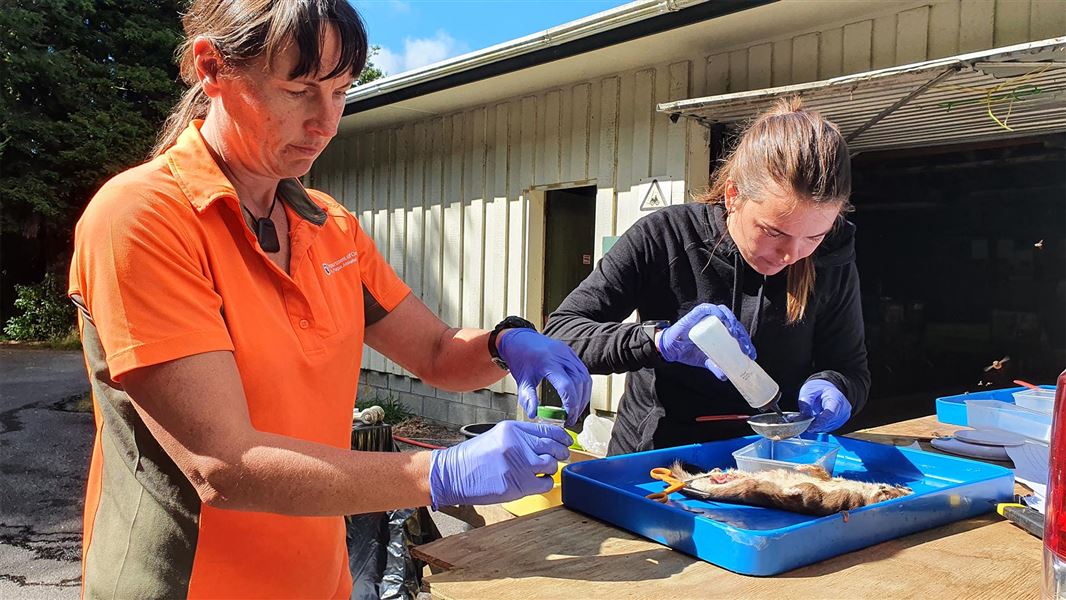Archived content: This media release was accurate on the date of publication.
Date: 03 March 2021
It’s a gruesome job, but someone had to do it.
A Lincoln University student is studying the stomach contents of stoats caught on Mount Taranaki to further her research into the introduced predators’ behaviour.
Working alongside DOC and the Taranaki Mounga Project, Masters student Katie Coster dissected the stoats to compare their gut contents to determine if their diet varied from site to site.
She discovered remains of birds, rats, mice and insects.
Katie is also interested in determining if a rise in altitude effects the frequency and number of stoats caught.
“I want to know such things as does their diet change if they are higher up the mountain?” she says.
“Does the number of stoats caught reduce or increase the higher up you go?
“Is the number of stoats caught effected by any features in the landscape?”
These could potentially have implications for baits used in traps, or where traps are set, she says.
Across the national park there are more than 5200 trap protecting vulnerable species such as whio and kiwi. More than 60 per cent of these traps are checked by volunteers including local businesses, families and dedicated groups such as the Kaitake Ranges Conservation Trust and Taranaki Kiwi Trust.
Although Katie has yet to crunch the numbers of her research, she is hoping the information she gathers will eventually be put into practical use in the field.
DOC Biodiversity Ranger Joe Carson says the results of Katie’s research will be interesting.
“Stoats are described as ‘public enemy number one’ for New Zealand birds. The more we know about their behaviour the better. Anything that helps us further protect vulnerable species such as whio, toutowai and kiwi is worth looking into.”
Katie is due to finish her Masters in natural resource management and ecological engineering in June and is hoping to present her findings later this year.
Jordan Lasenby, Environmental Officer at the Taranaki Regional Council is working on similar research as part of his University of Otago Masters programme.
His work is focused outside the national park with the Towards Predator-Free Taranaki project which works with landowners to expand mustelid control across the region.
Both sets of research will provide valuable information to help target mustelids across the region.
Contact
For media enquiries contact:
Email: media@doc.govt.nz
